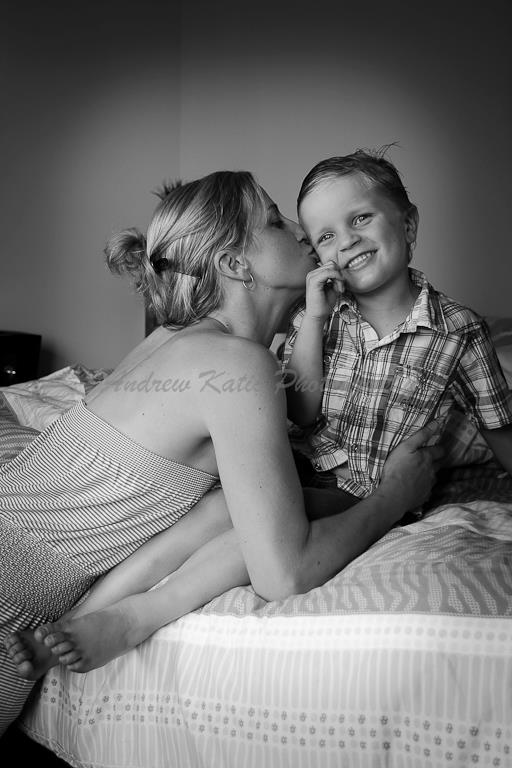 14 Jan 2014
14 Jan 2014
BY: Sara Trayman
Therapy Articles
Comments: No Comments
Other people’s reactions to your cancer
Almost every client I see has experienced the ‘tilted head’ at one time or another. What is this shared experience? Whether it be the person closest to them or a colleague who just heard the news, a familiar feeling washes over you when that head tilts to one side, the eyes become kind and you know in no uncertain terms a whole lot of sympathy is coming your way.
This can be extremely unhelpful to deal with even though it comes with the best of intentions. The trouble is that people do not know what to say or do to convey their own feelings and responses to your illness. They want to show that they care and that they are concerned about what you are going through but often all you want to know is that they still see you as the same person. The tilted head leads to you having to soothe them and reassure them that you are in fact fine and coping well. This is a tough situation to negotiate as what is intended as a show of support ends up with the onus being on you to smooth it over.
We have all done it and even when we have had the experience of being the recipient we will probably do it again. But there are no words to convey the empathy we feel or indeed the helplessness of seeing someone we care about fight to keep their health.
So what can you do? Sometimes there is no right way or words that anyone can offer us. When this is the case, you have to handle other people in the way that feels best for you at that time. You might need to let the sympathy flow towards you or to let it just pass straight through or you may even be able to let someone know what you need. Often humour is a way to break the ice and ignoring unhelpful reactions can help at other times.
It may be trial and error until you decide what is right for you. Let in the good and let go of the bad. It is your journey and you will get through the best way you know how. Support from loved ones is vital so keep close those people who just ‘get it’ and do not be afraid to have space from these who do not.
 14 Dec 2013
14 Dec 2013
BY: Sara Trayman
Therapy Articles
Comments: No Comments
“I’m a parent, get me out of here”: Parenting Consultancy
Who might need parenting consultancy?
For some parents the journey to parenthood has not been a smooth one. Difficulties conceiving, during pregnancy and other events during this period such as family bereavement or significant changes can make this time particularly challenging. The demands of being a parent coupled with these stresses and many others can leave you feeling as though you have very little space to think.
When parents seek out parenting consultancy they are often feeling very stuck and like there is no way out. They need help to figure out what the difficulties are or how to help themselves. Parent consultancy is about you being the expert on your family lives, but like all experts, sometimes you need some support from someone else to help you get the best out of yourself. We all have moments where we feel overwhelmed and we cannot see the way forward and having someone understand your family values, hopes and story can offer you a place to work out the next step.
What is parenting consultancy?
Parenting consultancy is not therapy for you or your child. However, it is a place to think about relationships between you and your co-parents, and you and your child. Together with a therapist who has a background in working with parents and children you might consider some of the following things to help you to figure out the way forward:
• Your own experience of being parented
• Yourself as a child
• Experience/expectations/hopes of being parents
• The journey so far and how it has shaped you
• What you would like life to be as parents and as a family
• What you want your child to be-your best hopes for them and their future
• How do you set yourselves up to be the parents you want to be
Consultancy comes from the perspective that the child’s behaviours or difficulties are a communication from them that something is not working well in the family. Children (especially young children and babies) are often unable to articulate in words what it is that they are feeling. Parent consultancy is a space to have a foot in your child’s world and try to understand what they might be struggling with in a non-blaming way.
You’ll need to feel heard and understood and to be able to figure out what is working well and what your struggles are. Just having the space to talk things through outside of the chaos of family life can provide a peaceful reflection on what can often feel overwhelming and infuriating.
SOME HELPFUL QUESTIONS TO CONSIDER
• Asking yourself, if my child’s behaviour is a communication, what is he/she trying to say?
• What is going on for me at the moment that might be impacting on how I respond when things are difficult?
• What are the sources of support that I have and how can I utilise them more?
• What are my core values/beliefs as a parent and how do I work towards them being my main focus?
• How can I do more to take care of my own needs so that I can become more free to be available for my children’s needs?
• Is there anyone with whom I can talk through my concerns whom I trust and who will not judge me?
• What helps me relax/unwind after a difficult day?
• What are my best hopes for my child, myself and the future?
• What are my biggest concerns right now and what can I do about them?
• What would be one small change right now that would make a difference to me and my family?
Read more about my parent consultancy services:
http://69.89.27.213/~counseu6/parent-consultancy/
 14 Nov 2013
14 Nov 2013
BY: Sara Trayman
Therapy Articles
Comments: No Comments
Unhelpful Thinking
Sometimes it can be really useful to identify ways you think which leave you feeling more stuck. You may find that these unhelpful habits particularly appear when you are stressed or upset or that they can actually make you feel upset or stressed. We ALL have times when we think in unhelpful ways but being able to identify these moments helps you to have some distance from your thoughts-just because we think about things in certain way does not mean this is the way things are and always will be.
In cognitive behavioural therapy these ideas are often explored as they help to highlight how certain thoughts we have led to us feeling a certain way which in turn makes us behave in a certain way. It is this link between thoughts-feelings-behaviours that is at the core of cognitive behavioural therapy.
Let’s look at some of the more common unhelpful thinking patterns and some of the alternative ways of thinking:
BLACK AND WHITE THINKING – This is when we see things as either/or, good/bad, right/wrong e.g. I can’t get anything right, Either this will be successful or a complete failure. We might want to ask ourselves if it is truly one or the other? Aren’t there always shades of grey, is there a balance between these two possibilities?
MIND READING – This is when we assume we know what other people are thinking about us e.g. They think I’m such an idiot for blushing and stammering through that sentence. We might wonder how we know what others think, do they know what we are thinking? Is it possible that they are my worries about myself and not what they are thinking? What are the other ways they might be thinking?
CATASTROPHISING – This is when we assume that things have gone completely wrong or will do. We imagine the worst possible scenario and believe that this is what will happen e.g. Now I’m going to get fired as this is the worst mistake I could possibly make, They are going to dump me and I will be alone forever. Sometimes it can be important to think about how likely this is to really happen or what is more realistic? Also, to notice that I’m catastrophising and label it as that rather than a realistic prediction about the future.
SHOULDS, MUSTS AND OUGHTS – We often internalise the expectations the world puts on us as unrealistic expectations e.g. I should always be the best at what I do, I must get everything right, I ought to know what to do in this situation. Recognising the pressure we put on ourselves and challenging the obligation we place on ourselves is important here- where does this pressure come from? Do we think it is fair to measure ourselves against these ideals? How could we be fairer on ourselves?
EMOTIONAL REASONING – This is when we believe that our (often anxious) feelings about something mean that it becomes true e.g. It feels like something bad is going to happen therefore it will, I feel so anxious there must be something wrong with me. Often it is important to remember that feeling something to be true doesn’t mean that it is going to be/come true. My feelings come from how I think about things and not always an external reality.
These are some of the more common thinking errors that I have come across in working with my clients. Being able to recognise them for yourself can be the first step towards being able to distance yourself from them and free yourself up to more helpful ways of thinking.
 14 Oct 2013
14 Oct 2013
BY: Sara Trayman
Therapy Articles
Comments: No Comments
Living with Cancer-Yours or Someone you love
Cancer. Such a frightening word to say out loud and yet so many of us are having to face it at some time in our lives. Sometimes it’s a far away thing, a famous person, a friend’s family member, an item on the news. Yet it feels so different once it touches us personally. Whether you are the person who has cancer or it is someone who you love or care about dealing with cancer can be terrifying, confusing and overwhelming. This article seeks to think about some of those difficult feelings whether you are the person with cancer or someone you care about and to consider how therapy might be helpful for you.
Living with cancer is such an isolating place to be. It can feel that the whole world just seems to be getting on with things and there you are, facing every day with what seems an uphill struggle and a whole sea of uncertainty. This uncertainty often seems to take the form of torturous questions. ‘Why me?’ ‘Why our family?’ ‘What if I die?’ ‘What if they die?’ and ‘What if I’m not strong enough?’ go round and round in our heads. Many of these thoughts stay hidden, frightening to ask out loud or just too hard to say.
It may also be hard to ask questions, to know what will happen or to hear that we do not know will happen. Odds, statistics and horrible facts from the internet leave us flooded with fear and feeling you are not sure if you want to know.
How can therapy help me?
Therapy is not for everyone, it does not feel helpful for everyone but for some people it can be a place of refuge. A place to speak the unspeakable to someone who doesn’t need you to be strong or doesn’t force you to feel something, someone who accepts you right where you are. The experience of expressing some of the pain, frustration, confusion, irritation, anger or perhaps numbness you feel with someone along side you to support you can help you to manage. Your therapist can offer you a place where you do not have to worry about upsetting someone or scaring them with how you feel.
We live in a world where we like to believe that things can be easily explained, that we understand why and how things happen and that we deserve good things to happen to us. Dealing with cancer shatters these illusions and can release some powerful feelings that can be difficult to make sense of. Therapy is a space to think about those feelings, to experience them safely and to help to manage them. We can feel let down by our bodies and it can help to relearn how to trust and experience hope or acceptance.
When is the right time for therapy?
Again, this is different for everyone and it is important to consider the different stages you might find yourself in and how therapy can help at this stage if you are struggling.
AFTER DIAGNOSIS
Shock and disbelief may be your initial response to hearing that you or a loved one has cancer. Many thoughts will fly around your head and then you may have difficult decisions to make. How to tell loved ones and in particular your children, partner, parents and even your work colleagues can be difficult to work through. You may feel fearful about the future or need to focus on what is to come. Therapy at this time can offer support to anyone who is struggling to work through the turbulent time that can follow someone having a diagnosis.
DURING TREATMENT
This can be a difficult time to access therapy as life can become completely consumed with medical appointments and dealing with the day-to-day worries and physical implications of cancer treatments. It can be difficult to fit in the regular activities you do in life and it can feel like you are exhausted by small tasks whether you are the person who has cancer or someone who is supporting them. Having a space to talk to a therapist in this time (if this is something that is feasible) can help you to manage some of the psychological implications and to have a space to offload and feel safe and supported.
AFTER TREATMENT
There can often be a fantasy, especially for people who care about the person with cancer, that when the treatment is over the person is now ‘fine’. Whether the treatment is successful or not, dealing with cancer does not always get easier at the last radiotherapy session. Sometimes people are able to put it to one side and can quickly return to a normal life. They may want to try to forget about what they have just experienced and to get back to living. However, for some people it can be difficult to adjust and to let go of some of the unexpressed anxiety and worry that they have been experiencing often for months. For many people this too eases over time but for some others this can be a point where therapy might help.
It can be a space to make sense of what the future looks like, whatever that means to you at the time. Especially when some of your support network may step back and ‘go back to normal’ and you feel anything but. Making sense of these feelings with a therapist can alleviate some of the weight of carrying them around. This may particularly mean that you will feel fearful ‘what if I always worry about every twinge?’ ‘what if it comes back’ ‘how do I talk about how I feel when I’m scared in case it scares someone else?’ and ‘what will happen to me and my family?’. These are all questions that can be thought about and which you can learn to manage differently during therapy at this stage.
I hope that this article has helped, that you might have been able to identify with some of the things that I have described. I also hope that this helps to make sense of or reassure you about the things that you have been worrying about. If you feel that this has helped you identify a need for you to have some therapy to help you don’t be afraid. Try it and see if it helps. If it doesn’t seem helpful for you that’s ok too but it may just help you at a difficult time to feel unstuck and a little less alone.
